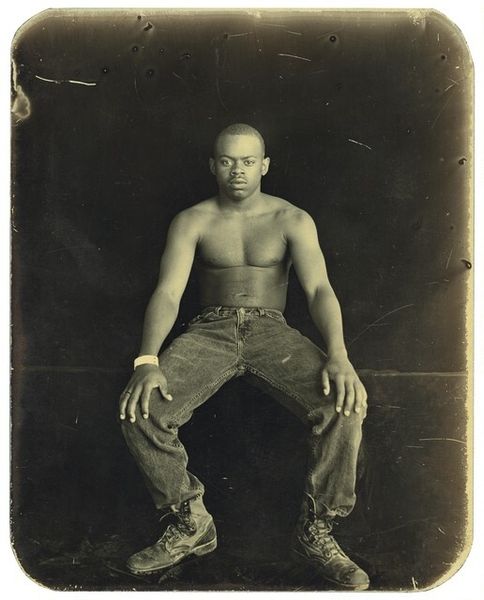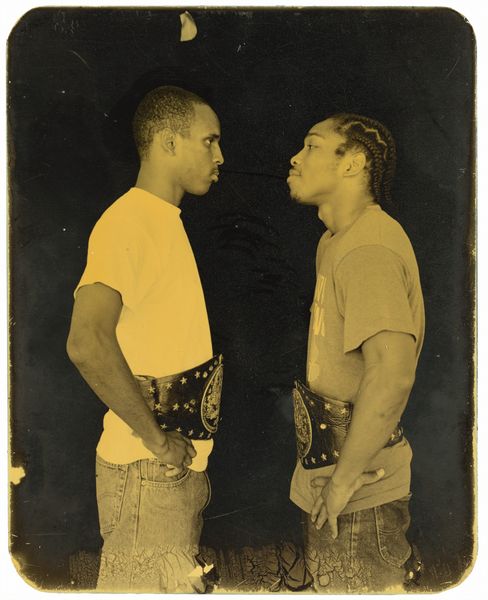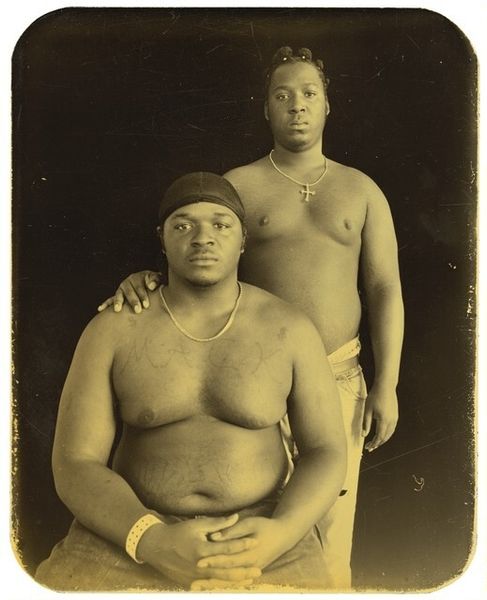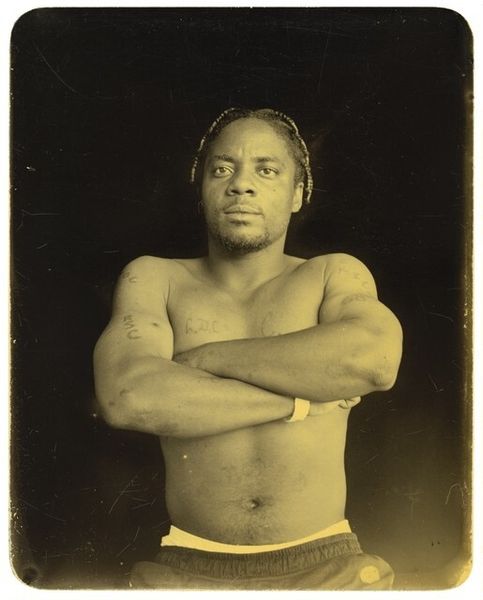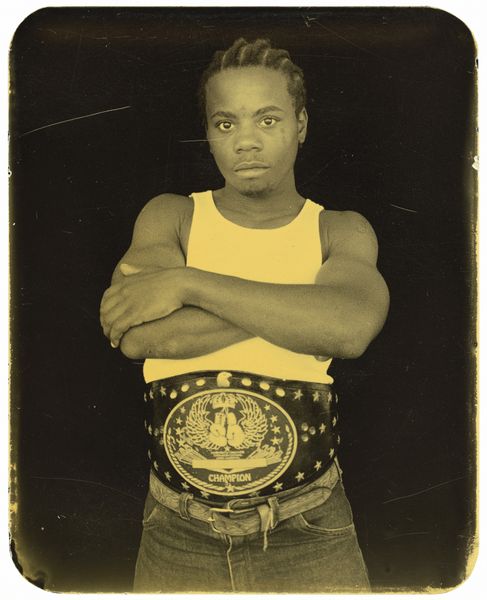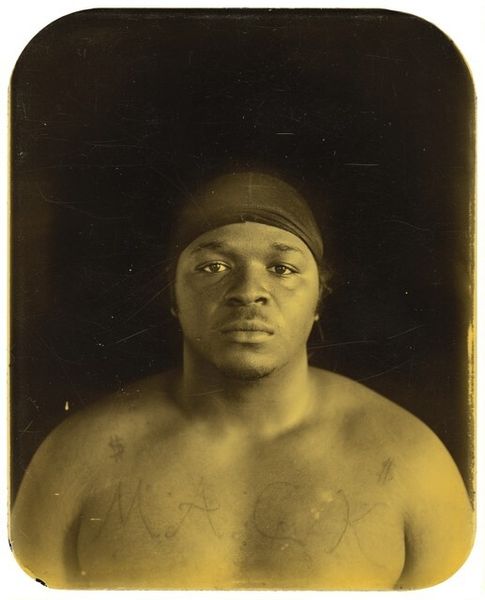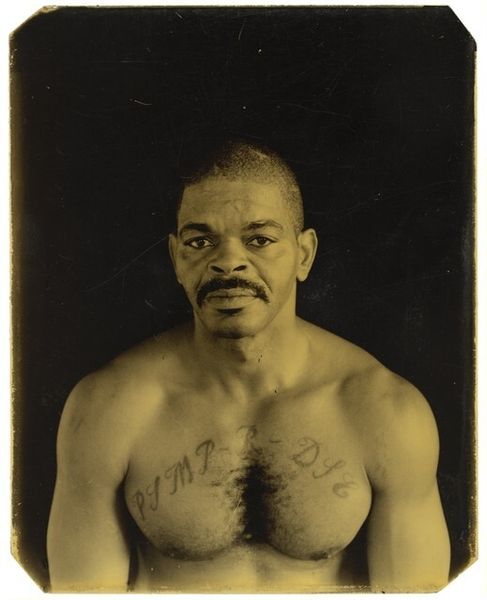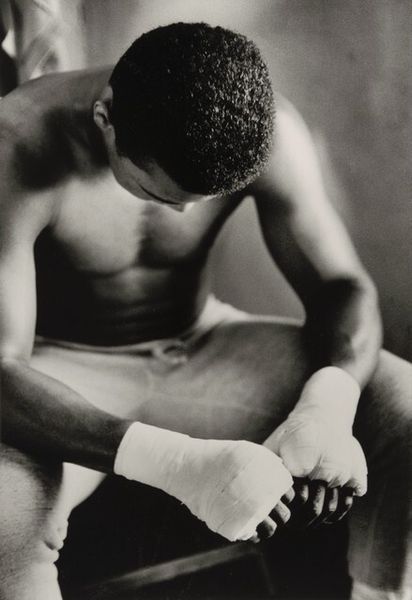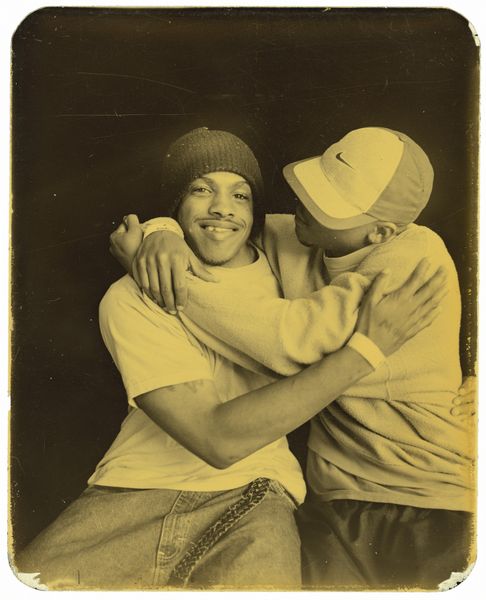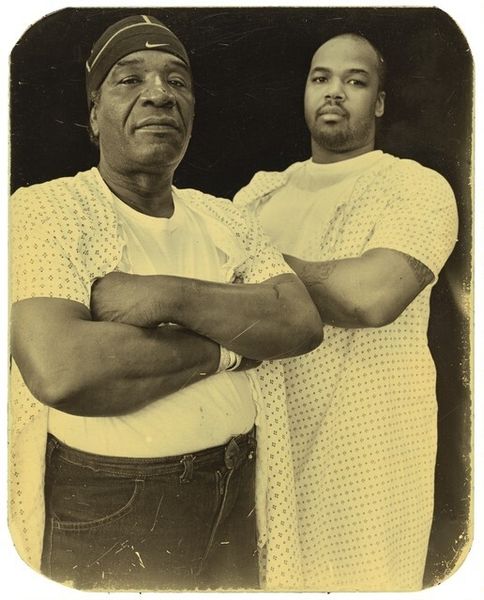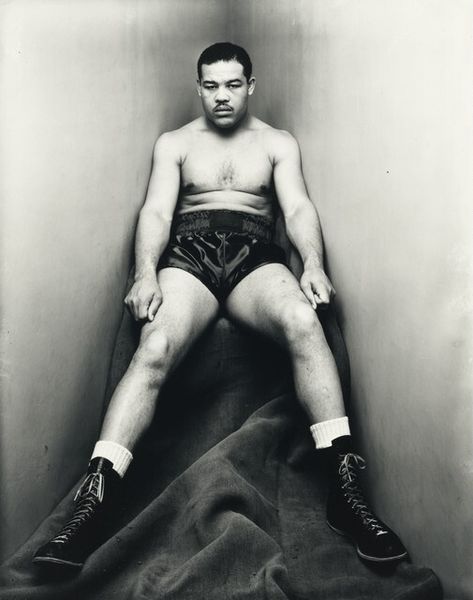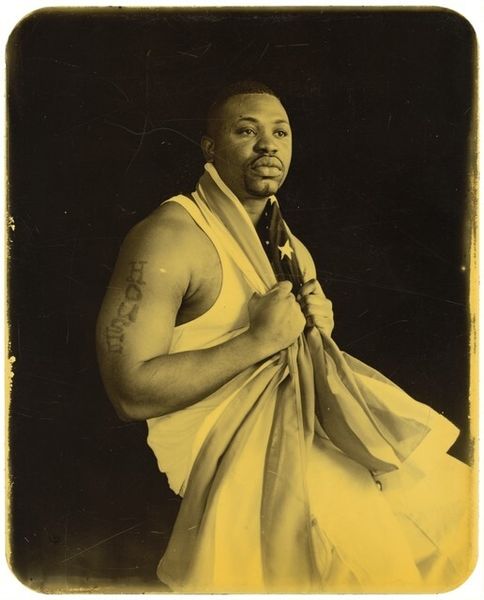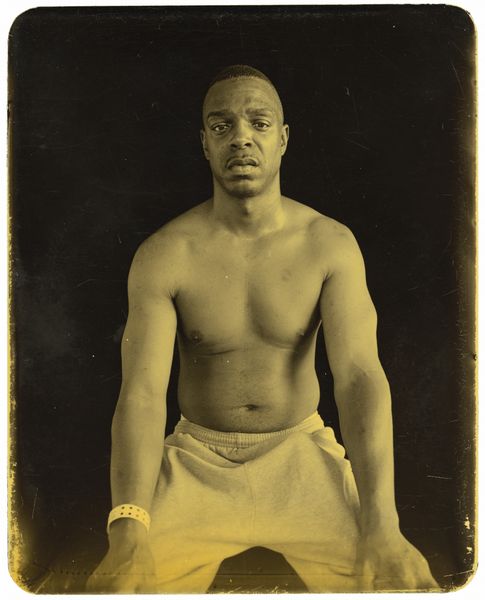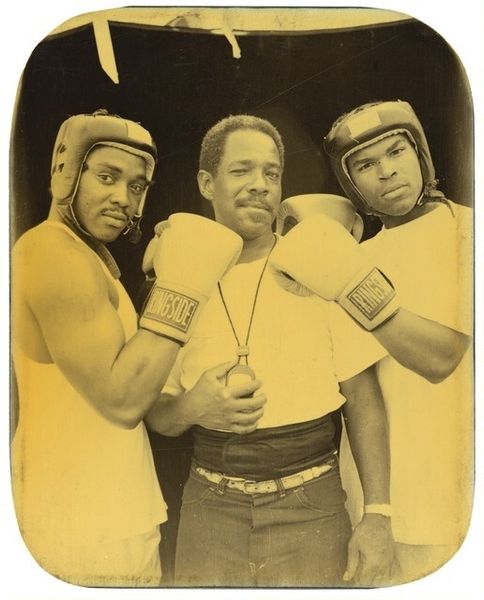
James Barnard Jackson, "Shake Back," Quinn Kareen Millage, and Brian Jackon, "Lil Collins," Transylvania, Louisiana 1999
0:00
0:00
c-print, photography
#
portrait
#
african-art
#
personal snap photobooth
#
contemporary
#
photo restoration
#
low key portrait
#
photo element
#
c-print
#
candid portrait
#
photography
#
person communication photography
#
single portrait
#
portrait character photography
#
portrait photography
#
celebrity portrait
Dimensions: image/plate: 12.7 × 11.1 cm (5 × 4 3/8 in.)
Copyright: National Gallery of Art: CC0 1.0
Editor: This c-print photograph from 1999 by Deborah Luster captures James Barnard Jackson, Quinn Kareem Millage, and Brian Jackson in Transylvania, Louisiana. It's titled "\"Shake Back,\" \"Lil Collins.\" The composition has a certain rawness to it. What can you tell me about it? Curator: The rawness you observe speaks volumes. Luster’s portraits often explore themes of vulnerability and resilience within communities marked by systemic inequality and violence. The direct gazes challenge the viewer, prompting us to confront the ways in which Black masculinity is represented, and often misrepresented, in visual culture. Who controls the narrative, and for what purposes? Editor: I see what you mean. It does make me think about how often images of Black men are associated with danger. How does Luster challenge that stereotype here? Curator: By framing her subjects with intimacy and dignity, the photograph subtly subverts dominant narratives. Note the studio setting—it’s almost a reclamation of space. Luster empowers her subjects by allowing them to participate in constructing their own image. The performativity, the choice of attire... It’s all part of their self-representation, resisting erasure. What do you think of their poses and expressions? Editor: The man on the right seems confrontational, maybe defiant, but the others are more reserved, even vulnerable. I guess it's more complex than a single narrative. Curator: Precisely. It reflects the layered experience of Black men negotiating their identities within a society that seeks to define them. These images become crucial documents, resisting historical silences. Editor: I never thought of it that way, but you've opened my eyes to the power of visual representation in shaping social perceptions and fighting for visibility. Thanks! Curator: And thank you for drawing attention to these important complexities within Luster’s work. It is in nuanced dialogues like these where true understanding begins to form.
Comments
No comments
Be the first to comment and join the conversation on the ultimate creative platform.
